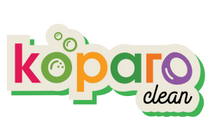
Deep Cleaning Your Floors: A Comprehensive Guide for Indian Homes
Indian homeowners, feel honored when it comes to our homes and make all efforts to take good care of them. Deep cleaning of the floors is one of the essential things in home maintenance which tends to add to their beauty besides keeping us healthy within our premises. In this, we discuss why it’s important to deep clean, share some advice concerning various floor coverings, and introduce some green options for washing floors.
Why Deep Cleaning Matters
Deep cleaning is more than looking good — it's a necessary part of floor life preservation. If you are not careful, the floors can become dreary due to dirt, grime or pollutants which cause harm over many years of use. Although, surface cleaning is key in making them always appear okay, deep cleaning serves as a rejuvenation session for your floors as it brings back their original glossiness and how beautiful they initially were before anything happened to them. This way, through deep cleaning, it makes old floors look new by taking away all embedded dirt and stains meaning its durability is maintained at an optimum level.
Types of Floors and Their Cleaning Needs

Hardwood Floors
Indian households are increasingly looking to save on hardwood floors, although they need to be handled with care. The two types of hardwood flooring are the solid hardwood and the engineered hardwood. You can sand and refinish solid hardwood multiple times, unlike engineered hardwood which has a thin wear layer whose refinishing is done fewer times.
Cleaning tips:
- Dry cleaning: Use a vacuum cleaner or broom to remove dirt and trash during dry cleaning.
- Mopping: For wiping up, wet-mop with a mild soap solution or just water containing a few drops of mild soapy stuff.
- Spot cleaning: For getting rid of gumminess or spots, try putty knife together with a piece of cloth.
Laminate Wood Floors
This is a cheaper option than hardwood floors and will not require thorough care, however, frequent cleaning is necessary to prevent their spoiling.
Cleaning tips:
-
Remove spills immediately: Get rid of spills quickly before they stain.
-
Damp mop: Make use of a damp mob with just ordinary water or laminate floor cleaner.
-
Stain removal: Tough stains will require a solution of vinegar mixed with water.
-
Dry thoroughly: Avoid any form of water damage by ensuring that the floor gets dry entirely.
How to Make a Natural Floor Cleaner
Creating your natural floor cleaner is simple, cost-effective, and environmental friendly. Here's a basic recipe:
Ingredients:
- 1 cup white vinegar
- 1 tablespoon baking soda
- 1 tablespoon liquid castile soap
- 10 drops of essential oil (optional, for fragrance)
- 4 liters of warm water

Instructions:
- Combine ingredients in a large bucket.
- Add warm water and stir the mixture thoroughly.
- Add essential oil for fragrance.
- Pour the solution into a spray bottle for easy application.
Most floor types, including tile, vinyl, and laminate, can take this natural cleaner. However, vinegar should not be used on natural stone floors like granite or marble because the acid may spoil the surface.
Guidelines
Climate Considerations: The diverse climate of India imposes caution on floor upkeep. For instance, floors in high-humidity areas might need regular washing to forestall the growth of mold and mildew. This is not the same for dry zones where sweeping might be necessary daily to minimize dust accumulation. Consequently, adjust your schedule for cleaning floors depending on the location.

Traditional Floor Types: Naturally, Indian families have tile or marble on their floors in many cases when it comes to cleaning it best. Below are the possible methods to adapt:
Tile Floors
Tile floors should be cleaned by using a solution of water and soap that is not strong. Also, rub with a scrubber to remove dirt that sticks in between the lines of cementing.
Marble Floors
In reality, one should not clean marble floors with acidic compounds such as vinegar at all–it would only result in etching. Instead, opt for something like a pH-neutral floor cleaner solution or just use some plain old water diluted with soap that’s kind to mankind!
Eco-Friendly Practices: One should consider using natural materials for cleaning purposes to avoid polluting the environment. Using things like vinegar, baking soda, and essential oils. It is advisable to stay away from items with chemicals that can be detrimental to our surroundings and well-being.
Regular Maintenance: Sweep or vacuum daily, use doormats, avoid excessive water, and address spills promptly.
Switch to Safer Alternatives
If this sounds overwhelming, and yes it can be - why don’t you try Koparo’s floor cleaner, we use natural surfactants, tea tree oil as an antibacterial agent, and no harsh dyes. The best part, there is no benzalkonium chloride or BAC which has been linked to allergies for kids and pets!
Conclusion
Ensuring that you clean your floors thoroughly on a regular basis will help you create a safer and more sanitary environment. Moreover, these guidelines alongside eco-friendly cleaning solutions guarantee clean, secure, and appealing floors. There are many reasons why thorough cleaning is important. This should include the reason of having a hygienic living space that makes your house beautiful and comfortable as well.
For more information on what disinfectants contain, check out our blog on what is the composition of disinfectant floor cleaners.








